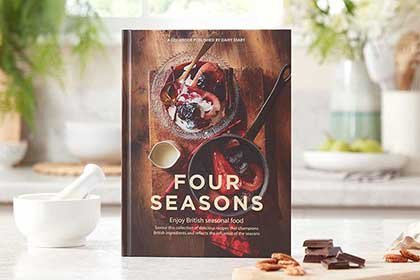Making an effort to incorporate moments of calm into your day can have positive effects for mind and body, including enhanced concentration and contentment.
There’s no denying that modern life can be stressful. Faced with longer working hours and the magnetic tug of our smartphones, choosing calm in the midst of chaos can sometimes feel like an insurmountable task. In today’s technology-oriented society, it can be tricky to stay connected in the present. We are faced with a flood of information, whether in the form of news, television programmes, app notifications or messages from friends heralded by our buzzing smartphones. While being more connected than ever does have its benefits, it can also leave us aching for a quiet moment to ourselves.
It’s not the being calm itself that is difficult, but remembering to slow down.
Should you find yourself stressed because you’ve taken on too much or your day has veered off course, taking a moment to gather your thoughts can be hugely beneficial for your state of mind. Opting to stay calm is a mindful act; a choice to be present and aware.
The best thing about adding mindful moments into your day is that over time, you will form a new habit. What’s more, it doesn’t have to mean retreating to a dark room to recite rounds of ‘om’. It can be as simple as you like and adapted around your routine so that it becomes as much a part of the day as the school run or boiling the kettle.
Just breathe
Paying attention to the breath is one of the simplest ways to introduce calm when your mind is racing. A round of deep breaths instantly slows the sympathetic nervous system, which controls the fight or flight response.
Set an alarm on your phone or computer for a time when you know you might be feeling swamped, like returning after lunch to a full inbox. Choose a calming tone – a bell or singing birds – to sound the alarm, and to differentiate it from the beeps of notifications. When the alarm chimes, inhale deeply for at least four breaths to relieve tension. As you breathe in, become aware of the sensations in your body. Exhale for four beats. Repeat regularly.
Listen deeply
Instead of focusing on your noisy thoughts, try concentrating on the sounds in your surroundings. Pay attention to whatever you can hear, noticing chirping birds or the white noise of the washing machine. Awakening this sense will lead you to notice the beauty in the present, in all its fullness.
Slowly does it
If you’re feeling overwhelmed, it can help to tackle each item on your to-do list in a conscious way by ‘mono-tasking’. Say to yourself: “I’m going to do the washing-up for 10 minutes” or “I’ll answer emails for 15 minutes”. This can bring order to what might seem like a never-ending list.
Go with the green
Spending time in nature relaxes the mind and body. Research has proven that just being among trees lowers levels of the stress hormone cortisol in the body and can have beneficial effects on blood pressure and heart rate. You don’t need to trek to your nearest forest to reap the benefits, either. Watering the plants or sipping your morning coffee outside can be just as soothing.

Use your imagination
Visualisation may sound a little out there if you’ve never tried it, but it can be a fantastic way to reduce stress. It is the practice of imagining yourself in a safe, peaceful state, in a place that makes you feel relaxed. The human mind is astonishingly powerful, and by visualising tranquillity you will start to invoke calming feelings in the body, relieving tension.
The power of visualisation has been backed by science as studies have found that the mere act of imagining creates new neural pathways. Set a 1-minute timer and imagine yourself in a place that makes you feel serene. Repeat throughout the day for best results.
Savour suppertime
Ever find yourself wolfing down dinner without really focusing on what you’re eating? Mealtimes, given how routinely they occur, offer a superb opportunity to practise slowing down. Switch off autopilot and take your time noticing the texture, flavours and aromas of your meal. Eating more slowly will also do wonders for your digestion.
Give yourself permission…
…to embrace imperfection. So much of the pressure we heap on ourselves is about reaching unattainable standards of perfection. You might be surprised to find there’s joy in the not-quite-perfect. The Japanese have a word for this – wabi-sabi – which realises that the only constants in life are the three ‘i’s: impermanence, imperfection and incompleteness.
Once we realise that nothing lasts and nothing can ever be perfect or ‘finished’, ourselves included, we free up our minds to focus on the present. And in so doing, adopting the art of calm suddenly feels much more achievable!

Head of Dairy Diary; I’m passionate about producing high quality products that our customers will cherish. I’m also a mum of three and I enjoy cooking, walking, gardening and art with my family, as well as lino printing (if I find time!)
































Thank you Emily, Dairy Diary for your words for thought!
So true and helpful.
Even taking the time to sit and read your post has made me stop and think. Thanks
Yes I think you are right, just being aware of little things that make up the day…
whatever and whenever is happening..
I do breathing slowly and steady, when I’m having ‘one of those nights’,
lying in bed, wide awake, with the mind just going around and
around…trying to make sense of things
Just taking some time out, taking control of the chaos…
Slowing the breathing down makes everything ok